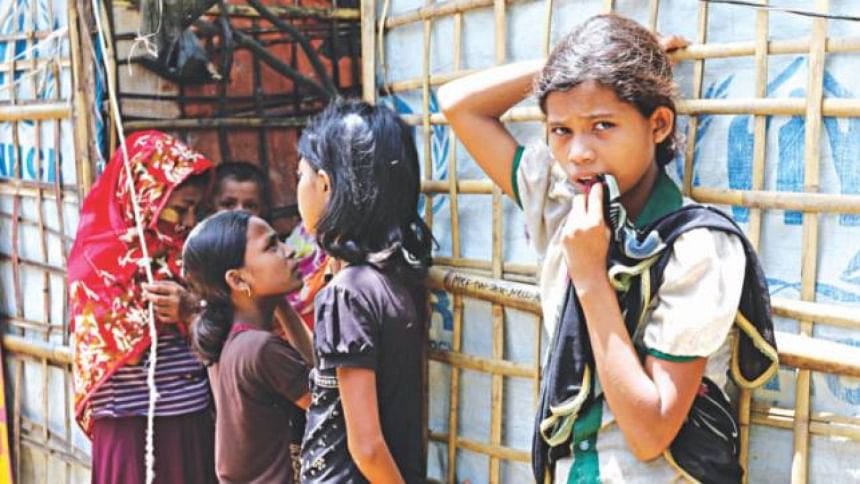Entire education system in Cox's Bazar under threat: CCNF

Cox's Bazar CSO-NGO Forum (CCNF) has called for taking up special rehabilitation programmes for local educational institutions and students affected by the Rohingya influx in Cox's Bazar in 2017.
The network of 50 local NGOs and civil society organisations also demanded introduction of education for Rohingyas with Myanmar curriculum to make Rohingya repatriation sustainable.
The CCNF made the call in a statement on the occasion of International Day of Education on January 24.
It said some local education institutions in Cox's Bazar were initially used as temporary barracks for military personnel in the beginning of the Rohingya influx in 2017 when some 750,000 Rohingyas fled a military crackdown in Rakhine state of Myanmar and took shelter in Cox's Bazar.
As a result, these institutions shut down their activities for a few months. Many students also stopped going to school because of the increasing number of people and the huge congestion of vehicles used in humanitarian relief operations. Many college students and teachers got the opportunity to join the various organisations involved in the relief programme.
"Thus, the entire education system is under threat," said the CCNF.
According to the press statement, although Rohingya children aged 6-14 years have been included in the non-formal education programme initiated by Bangladesh government and various organisations, 83% of adolescents and youth aged 15-24 years do not participate in any education programme.
Education programs up to level 1-4 are currently being conducted for more than 300 thousand children and adolescents in approximately 6,000 learning centres. There is a sense of frustration among students and their parents about the lack of educational opportunities for those over 15 years of age and the lack of education in the Myanmar curriculum, CCNF said.
Rohingyas want to return to their homeland, but there is also enough interest in higher education among students. But students have been deprived of their regular studies for the last 3 years. They fear that their educational life will become uncertain as they return.
Against this backdrop, CCNF has called for infrastructural development of local educational institutions, recruitment of skilled teachers, arranging incentives for local students and establishing technical colleges in Cox's Bazar.
It also called for initiatives to ensure that Myanmar government recognises the Rohingya curriculum and educational activities adopted for the Rohingyas in Cox's Bazar camps. The international community needs to put pressure on Myanmar.
"We urge the UN and international donors to take effective actions to ensure the recruitment of adequate teachers and training for them. Many Rohingyas are educated in Cox's Bazar camps, they can be trained as teachers," CCNF said.

 For all latest news, follow The Daily Star's Google News channel.
For all latest news, follow The Daily Star's Google News channel. 



Comments